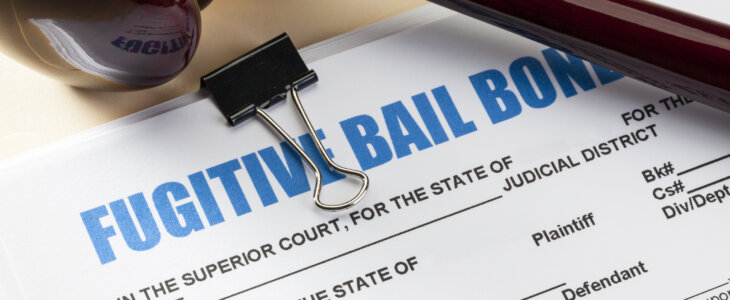After an arrest, you may have to pay bail to secure your release from jail pending trial. However, when the court sets a bail amount higher than you can afford, you may have to turn to a bail bond agency to pay your bail. Obtaining a bail bond imposes various obligations and restrictions, so you should know how bonds work and what to expect when working with a bail bond agency.
Understanding Bail Bonds
When a person is arrested and charged with a crime, the court must determine whether to detain them pending trial or release them during the pretrial proceedings. Sometimes, a court may impose bail as a condition of a defendant’s pretrial release. When the court orders bail, the defendant must pay the amount of the bail, which serves as a financial security to ensure the defendant appears for all court hearings and the trial. A defendant who makes all required court appearances will have their bail returned to them at the conclusion of their case.
In some cases, the court may set a bail amount low enough that the defendant can afford to pay bail. However, when a defendant cannot afford the bail set by the court, they must obtain a bail bond.
How the Bail Bond Process Works in Bay County
With a bail bond, a third party called a bail bond agency pays the defendant’s bail to secure their pretrial release; the defendant, in turn, pays the bail bond agency a nonrefundable percentage of the total bail to obtain the bond. Thus, when the defendant makes all required court appearances, the bail bond agency earns the nonrefundable percentage paid by the defendants as profit for providing the bond. In state criminal cases, bail bond agencies can collect 10 percent of the bail for their services; in federal cases, agencies can collect 15 percent. Some bail bond agencies allow defendants to use property like their vehicle or home as security for larger bonds.
However, if the defendant fails to appear in court when required or flees the jurisdiction, the bail bond agency loses the bail they paid on behalf of the defendant until they can secure the defendant’s appearance. Furthermore, if the defendant puts up their house, vehicle, or other property as security for the bond, the bail bond agency may choose to collect against that asset.
How Bail Bond Agencies Work
Under Florida law, a bail bond agency must hold a state license. An agency that provides bail for a defendant will sign a written agreement with the defendant. The agreement will describe what security or collateral the defendant has paid to secure the bail, how the agency will handle the collateral, the conditions under which a defendant can recover their collateral or obtain a refund of their premium, and restrictions the defendant must follow while out on bail (such as not leaving the jurisdiction or regularly reporting to the bail bond agency).
Bail bond agencies have the right to surrender the bond and put the defendant back in jail for any reason. When an agency puts a defendant back in jail without cause, they usually must refund the percentage paid by the defendant to obtain the bond. However, agencies may require defendants to return to jail if they breach the terms of their agreement. Defendants can also breach their agreement by getting arrested for new charges.
What Happens If You Fail to Appear in Court
If you fail to appear in court after a bail bond agency has paid your bail, the agency may lose that bail until it can secure your appearance in court. As a result, the law gives bail bond agencies the authority to track down and arrest defendants who have missed court appearances or fled the jurisdiction.
Contact a Criminal Defense Lawyer Today
When you face criminal charges and the court imposes bail as a condition of pretrial release, obtaining a bail bond can help you get out of jail to work with your lawyer on your defense case. Contact The Sombathy Law Firm today for a confidential consultation to learn more about the bail bond process in Bay County, FL.


